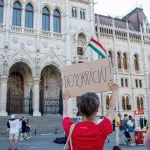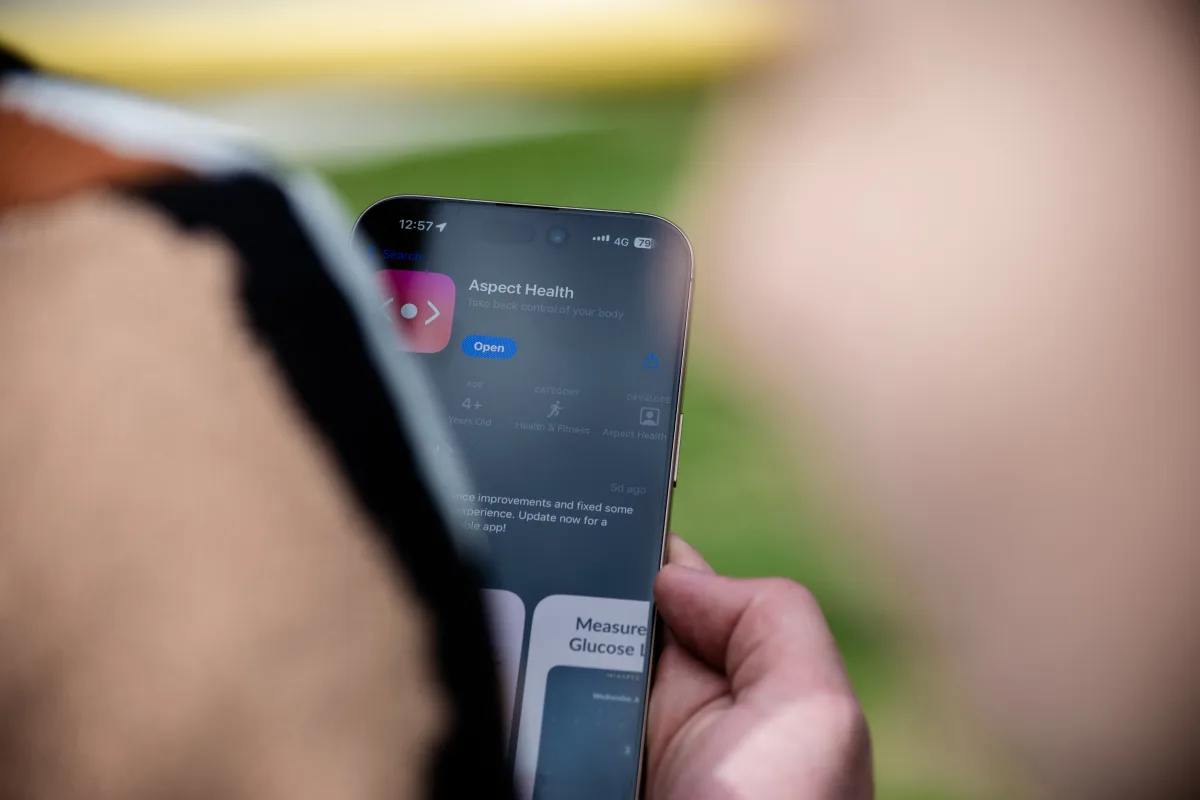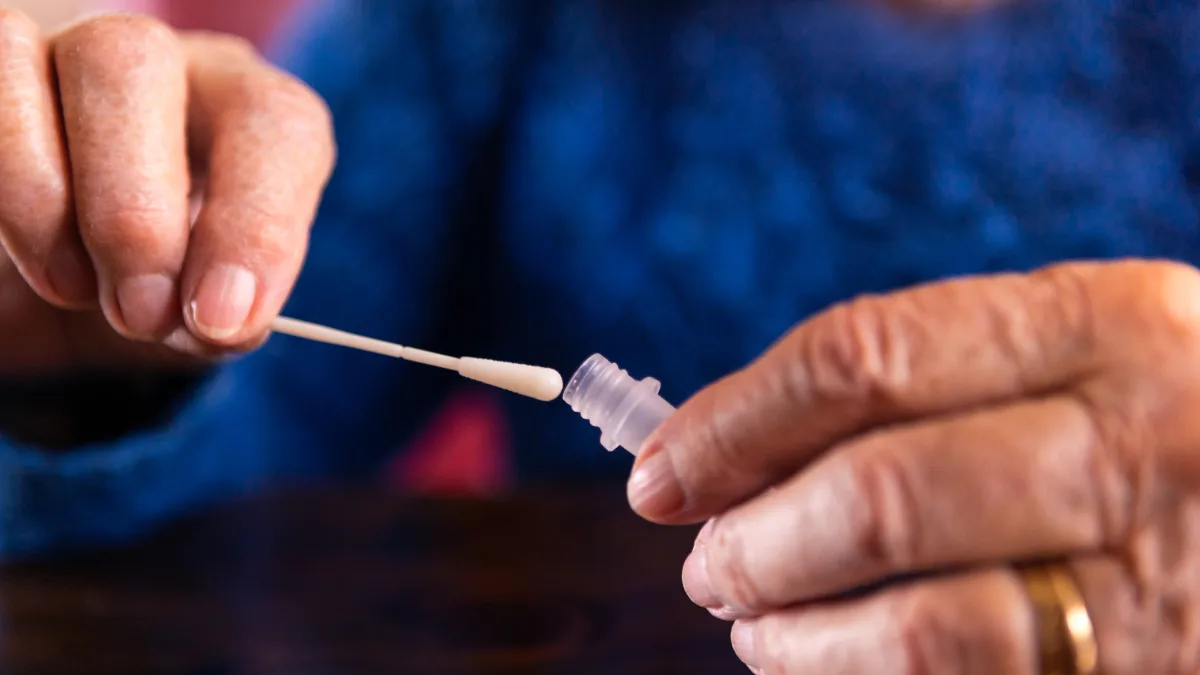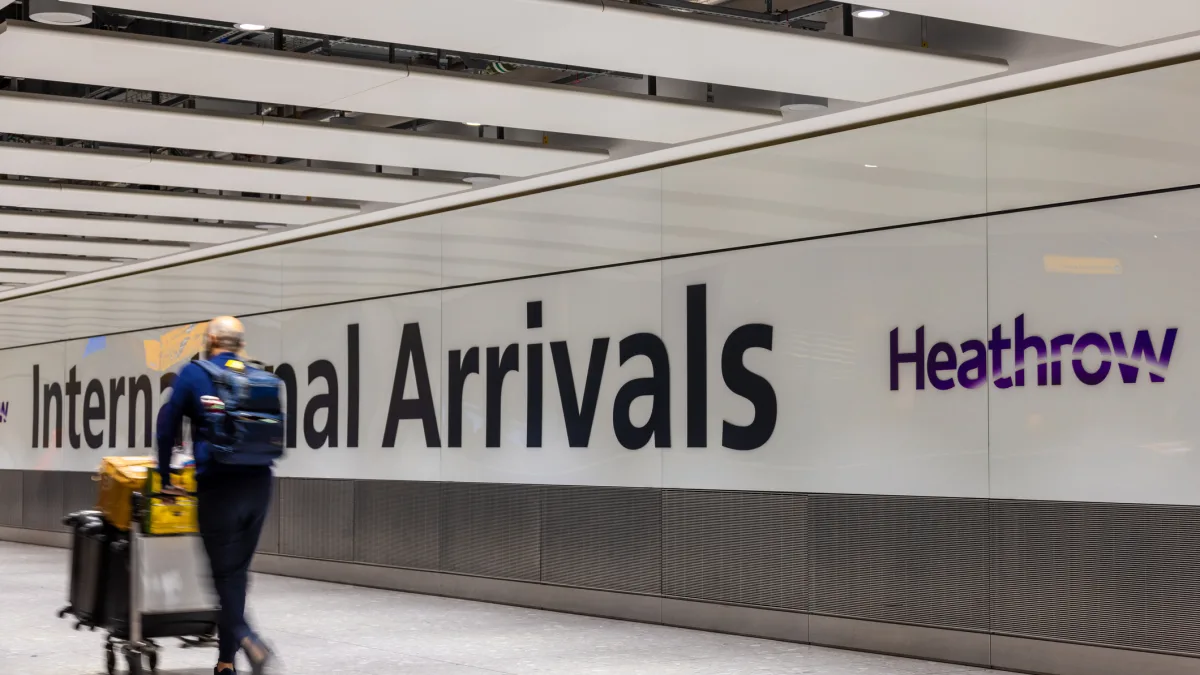Gleb Babiy stands out from the crowd. He has the confidence of a 22-year-old business owner who feels at home in Silicon Valley and New York. But actually, he comes from a small, stateless place, Transnistria.
Transnistria, a region of Moldova, is one of those few, self-proclaimed ‘independent’ countries not recognised by most of the global community. It is stuck in time. Many of its remaining inhabitants, those who have not pursued opportunities elsewhere, are pensioners.
Babiy is one of those who left. He will soon become the first Moldovan on the Forbes magazine 30 under 30 global healthcare list. He has convinced investors to put over 1.6 million into his start-up, Aspect Health.
Aspect Health, currently US-based, is focused on personalised hormonal health for women. The platform combines wearable devices with AI to provide real-time lifestyle recommendations, helping users address issues such as PCOS, weight gain, and infertility.
The start-up has grown from 300,000 US dollars to around three million US dollars in annual revenue in under a year. It’s backed by Techstars, uVentures and the founder of Flo, one of the world’s most popular women’s health apps.
Always wanting more
Babiy grew up doing homework in his mother’s pharmacy, surrounded by prescription bottles and neighbourhood patients. Smiling, he tells us that he always felt predisposed towards working in healthcare.
But medicine wasn’t always the goal. As a child, Babiy struggled with obesity and fitting in. “Kids can be aggressive sometimes.” Sports gave him structure. Later, so did ambition. “I always had a lot of hunger,” he says. “Literal hunger and mental hunger. I just always wanted more.”
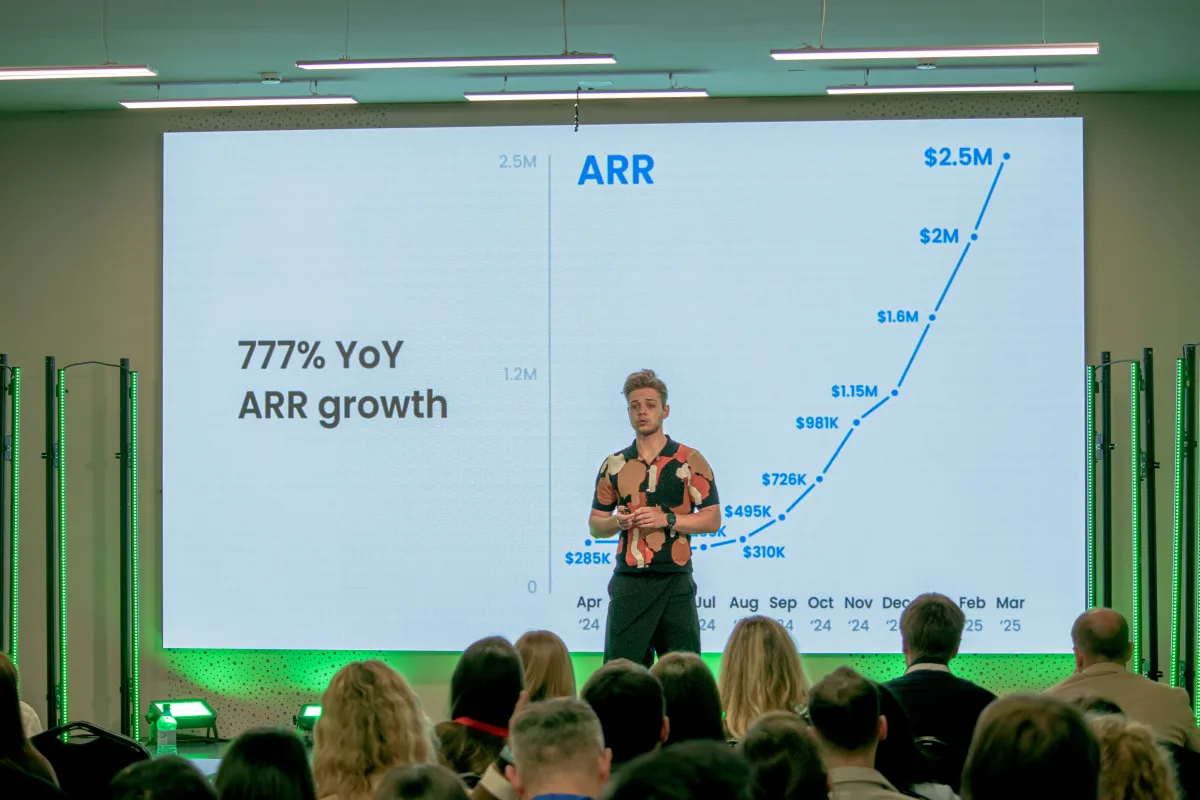
At 15, he left home to study medicine in Moscow . By 16, he had created a tool that could scan for micronutrient deficiencies; it’s a repurposed geological laser used to detect chemical composition. “We adapted it to measure magnesium and zinc levels in humans,” he says. “A major clinic got interested.”
Then came the first start-up attempt, a health-tech prototype built with borrowed hardware. A few entrepreneurs got interested and mentored Babiy. But it wasn’t until he moved to the US that things scaled. “In San Francisco, people actually believe in crazy ideas,” Babiy says. He arrived in January 2023. By February, he had raised his largest seed round and brought on board a technical co-founder from Noom, the 4.5 billion US dollars digital health unicorn.
“I did a lot of non-scalable, boring work, I would write hundreds of personalised emails a day. Many of those people, when I came to San Francisco, reacted with ‘Oh my God, you’re real.’ They would say, ‘You’ve been reaching out every year, many times without any response, and now you show up and you still talk to us’. It meant for them that I really wanted something,” Babiy recalls.
Today, Aspect Health is expanding its B2C subscription model and working toward US insurance partnerships. “I still write cold emails every day. That never stopped.”
But Moldova hasn’t disappeared from the picture. Babiy regularly returns to his homeland. “When I’m at home, I can finally relax for a week or so,” he says. “Everywhere else, I always feel that there is sound behind my back and I just need to run very, very fast.” Aspect Health is also registered in Moldova.
For now, the core team sits in the US. But Gleb plans to expand development under the seven per cent tax regime of the IT Park in Moldova.
You don’t need London to launch a mental health app
Elena Oprea is the co-founder of a mental health startup SelfTalk helping people develop emotional resilience through self-guided therapy journeys. Before launching the company, she lived in London, studied in Belgium and Germany, and worked at a start-up studio that helped build twelve ventures, one of which became a unicorn. But her story, like that of her company, loops back to Moldova, to the suburbs of the country’s capital.
“It’s the only place where I can hear my thoughts,” she says. “No stress. No events. Just strategy.” After years of fast-paced city life, Oprea moved home to regroup. The quiet helped. So did the realisation that one does not necessarily need Silicon Valley to build a global product. Just a laptop, a co-founder, and the courage to start again.
SelfTalk began with a problem: therapy is too expensive. A single session in London costs 250 UK pounds (around 300 euros). Oprea saw the value in conventional therapy, but quickly ran out of money. She and her co-founder, Viorica Vanica, created a workaround: audio therapy content that people could access on their phones. “We made 50 recordings for free,” Oprea said. “Only after selling a few did we start building the app.”
From there, things moved fast. The team pitched the idea at a competition found on LinkedIn and landed in the top five selected for Tim Draper’s Hero Training programme in Silicon Valley. With 178,000 euros in angel investment and a 60,000 UK pounds UK grant, SelfTalk began evolving.
The Selftalk app now offers psychologist-designed therapy journeys, an expanding library of self-help tools, and soon an AI-powered matching engine to guide users to the right program. Today, the product is used in the UK, the US, Moldova, and Romania. Most surprisingly, despite being marketed to women, it has more male users.
The platform is built by a small, distributed team mostly from Moldova. “We love the Moldovan IT Park,” Oprea says. “If I pay a developer 3,000 UK pounds in London, taxes are 800 UK pounds. In Moldova, it’s under 200 UK pounds. That extra money goes into product, growth, and people.” Developers, encryption systems, and AI components are all handled locally.
But Oprea’s growth wasn’t only professional. Moving home meant facing things she had avoided. “There’s this joke in therapy: your final exam is when you visit your parents,” she says with a smile. “And it’s true.”
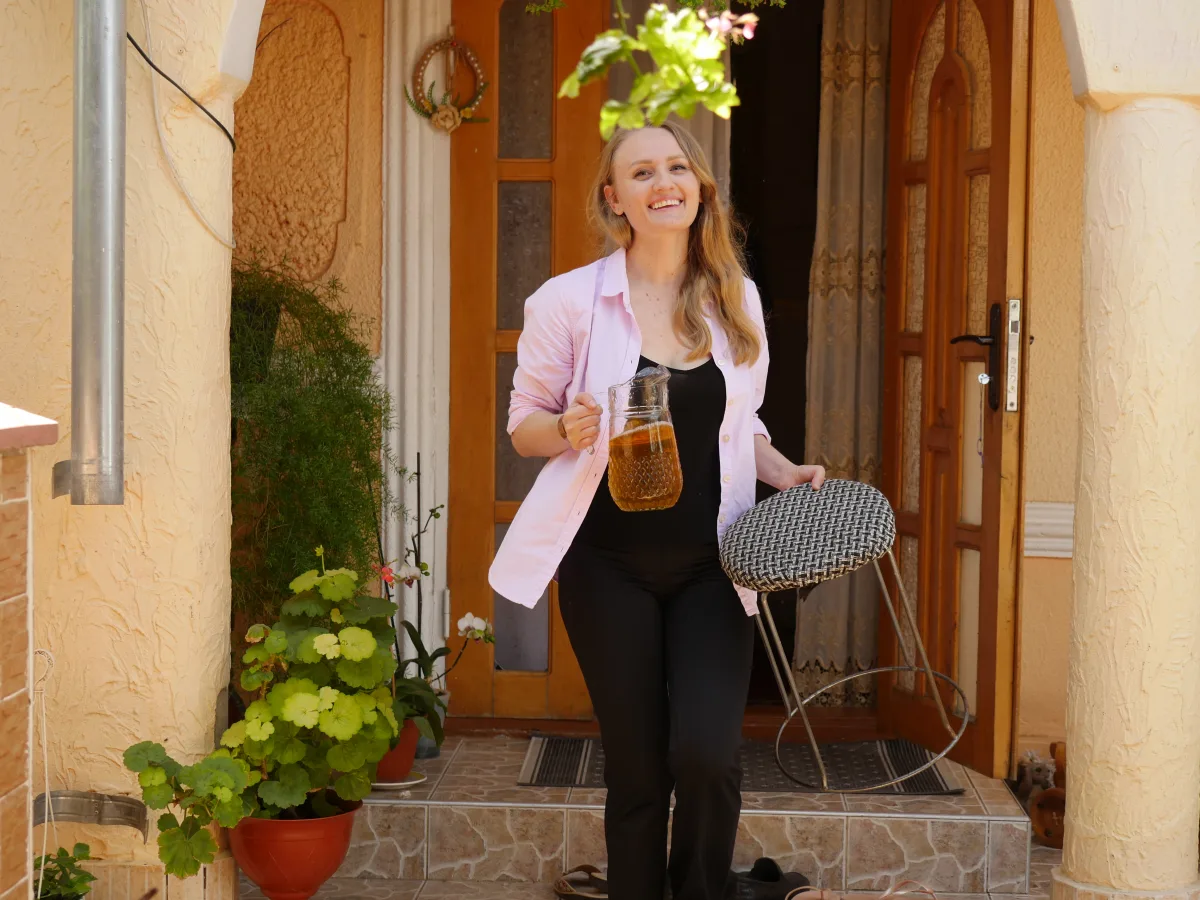
She began spending more time with her father, playing chess. Cooking with her sister. Walking with her mother. “It’s the first time I’ve really had a relationship with my family. That has no Return on Investment (ROI) for the business, but for the soul, it’s priceless.”
While Gleb Babiy attacked opportunity through relentless outreach and nonstop pitching, Elena Oprea reframed ambition as something deeper than velocity. “Founding a start-up is like switching from individual to systemic thinking,” she said. “It’s therapy for your entire mind.”
Neither Babiy nor Oprea built in isolation. Both start-ups are part of the broader ecosystem catalysed by Startup Moldova, a foundation that helps Moldovan founders access new opportunities. Olga Melniciuc, the organisation’s CEO, has positioned Startup Moldova as a structural force in Eastern Europe’s start-up landscape.
Gleb Babiy’s Aspect Health won the Startup Moldova Summit 2025, while SelfTalk has participated in networking and capacity-building programmes supported by the foundation. Today, Startup Moldova connects founders, investors, and global possibilities as an engine for long-term innovation.
Rooted in resilience, built for scale
In Moldova, calm doesn’t necessarily mean complacent. Elena Oprea is still based in the suburbs of Moldova’s capital, but SelfTalk is moving fast. The team now works with 20 psychologists, has launched over a dozen self-therapy programs, and is preparing its next AI milestone: a recommendation engine that interprets a user’s emotional state and suggests the most relevant tools.
“People don’t always know what their problem is,” Oprea explains. “You say you can’t say no at work. We help you realize it’s about boundaries.” SelfTalk is preparing for its next fundraising round to scale the product across Europe.
Gleb Babiy’s ambitions stretch further, too. Aspect Health is already one of the top three hormone health start-ups in the US. “We’re not selling gadgets,” he says. “We’re selling outcomes.”
For both founders, Moldova offers more than nostalgia. Elena points to the startup-friendly tax rate and local tech talent. Gleb keeps a legal entity in Moldova and admits it’s easier to work with people who think similarly and have the eagerness, talent and desire to grow beyond borders. For both, Moldova is not just a backdrop, it’s a resource.
